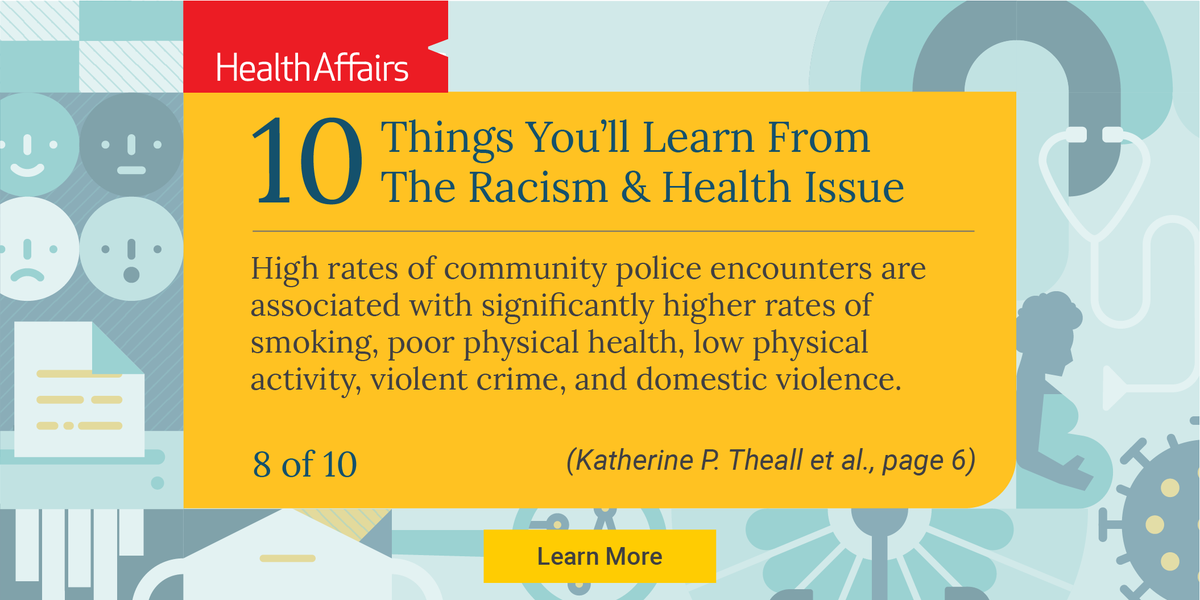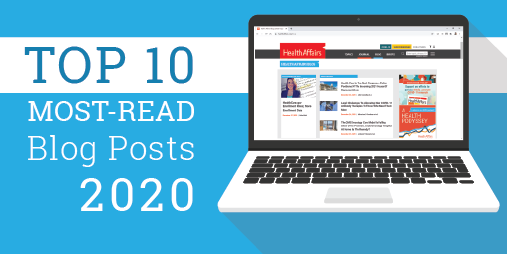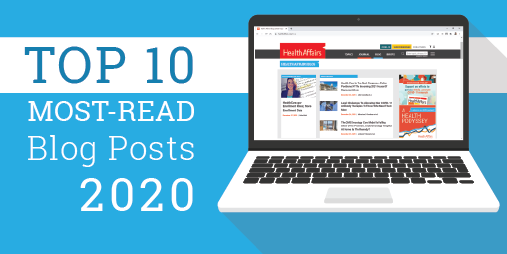We know time is limited these days, so we put together a list of 10 things you’ll learn from this month’s issue on #RacismAndHealth. To read the full issue, visit: bit.ly/3L77L37
🧵Continue on this thread to learn more.
🧵Continue on this thread to learn more.
1️⃣ Black patients have over 2.5 times the odds of having one or more negative descriptors in their electronic health records than White patients. #RacismAndHealth bit.ly/3rrdybG 

2️⃣ Structural racism against American Indians and Alaska Natives, including relocation to reservations, genocide, and inequities in health care access, negatively impacts intergenerational health outcomes. #RacismAndHealth bit.ly/3rrdybG 

3️⃣ Within the health care sector, Black women are disproportionately concentrated in low-wage, high-risk positions. Black women comprise 24.9 percent of licensed practical nurses and 23.0 percent of the long-term care workforce. #RacismAndHealth bit.ly/3rrdybG 

4️⃣ Poor-quality data infrastructure and biases in the public health community act independently and reinforce one other to harm Asian American health outcomes. #RacismAndHealth bit.ly/3rrdybG 

5️⃣ Rural zip codes with the largest shares of Black and American Indian/Alaska Native residents have greater median distances from certain health services than nonminoritized rural zip codes. #RacismAndHealth bit.ly/3rrdybG 

6️⃣ Health disparities experienced by Filipino Americans are caused by historically exploitative labor experiences, intergenerational trauma, and the model minority myth, among other factors. #RacismAndHealth bit.ly/3rrdybG 

7️⃣ Black and Hispanic home health patients have, on average, lower use high-quality home health agencies, even after accounting for neighborhood fixed effects. #RacismAndHealth bit.ly/3rrdybG 

8️⃣ High rates of community police encounters are associated with significantly higher rates of smoking, poor physical health, low physical activity, violent crime, and domestic violence. #RacismAndHealth bit.ly/3rrdybG 

9️⃣ Minority Medicaid managed care enrollees report significantly worse care experiences than White enrollees. #RacismAndHealth bit.ly/3rrdybG 

🔟 Residing in states with higher levels of racialized electoral disenfranchisement is associated with more depressive symptoms, functional limitations, and difficulty performing daily living tasks among Black people. #RacismAndHealth bit.ly/3rrdybG 

• • •
Missing some Tweet in this thread? You can try to
force a refresh














